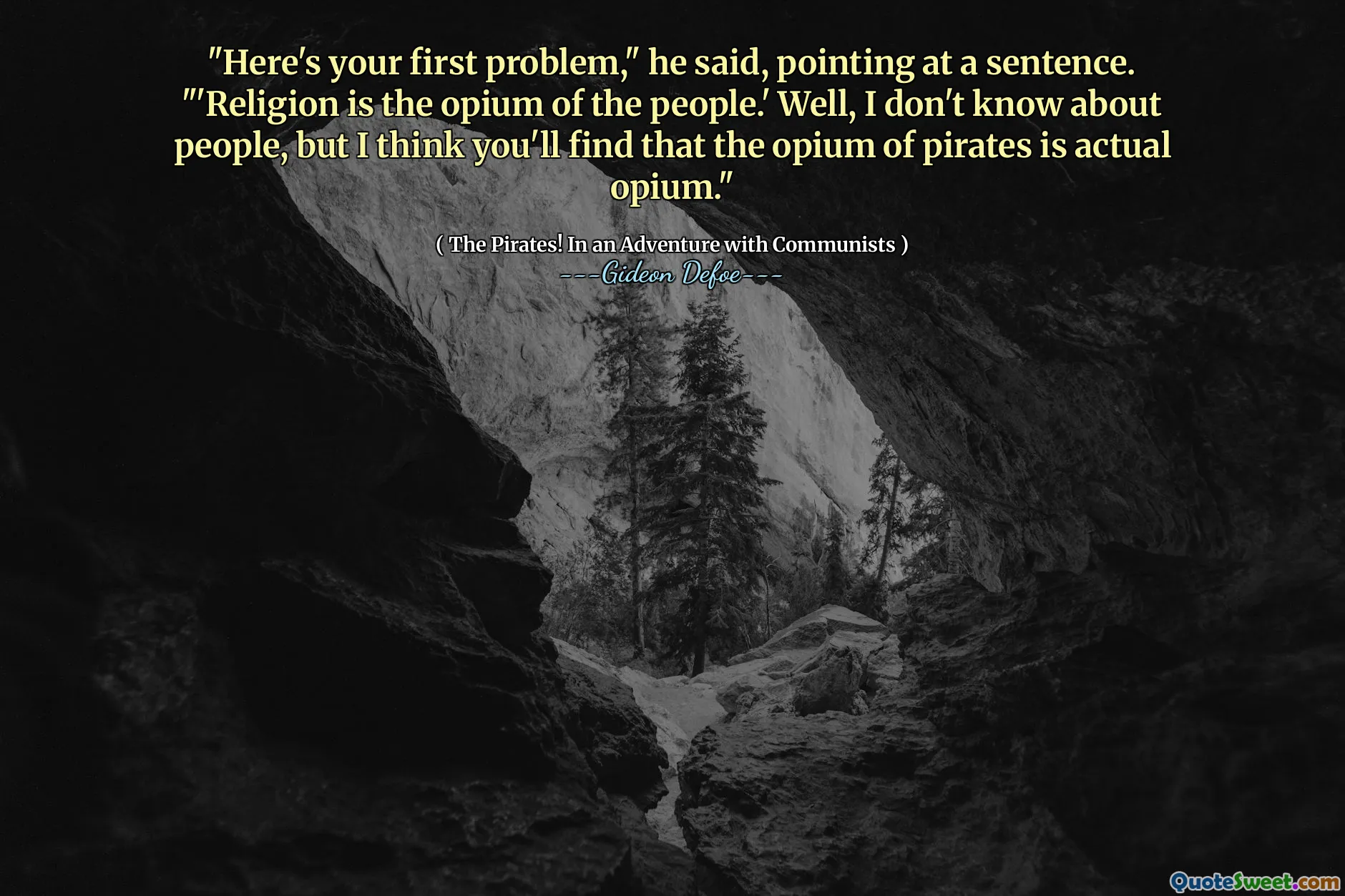
"Here's your first problem," he said, pointing at a sentence. "'Religion is the opium of the people.' Well, I don't know about people, but I think you'll find that the opium of pirates is actual opium."
This quote cleverly juxtaposes a famous sociological assertion with a humorous literal interpretation, drawing a sharp contrast between metaphor and reality. The original statement, "Religion is the opium of the people," by Karl Marx, suggests that religion acts as a soothing, pacifying force within society — essentially a means to placate the masses and divert their frustrations. However, the speaker in the quote humorously critiques this universalizing claim by arguing that for pirates, the opium isn't metaphorical but material. This sardonic remark playfully undercuts the seriousness of Marx’s observation by literalizing it within a niche context.
This instills a broader reflection on the universality of grand statements or ideologies and the need to recognize contextual and cultural specificity. What works as a metaphor or a broad social theory doesn't necessarily apply equally or directly in every circumstance. It calls attention to the value of humor in challenging authoritative or widely accepted ideas, encouraging a questioning mindset rather than blind acceptance. Moreover, the line also highlights how language and meaning can be twisted based on perspective and intent — a reminder of the importance of interpretation and critical thinking.
Beyond its immediate wit, the quote ultimately celebrates individuality and the distinctive nature of subcultures or unique communities, such as pirates in this case. It brings a lighthearted, creative lens to philosophical discourse, inviting readers to appreciate diverse viewpoints and to remain playful, even when engaging with complex social theories. It deftly blends laughter with thoughtfulness, a hallmark of both good satire and meaningful dialogue.






